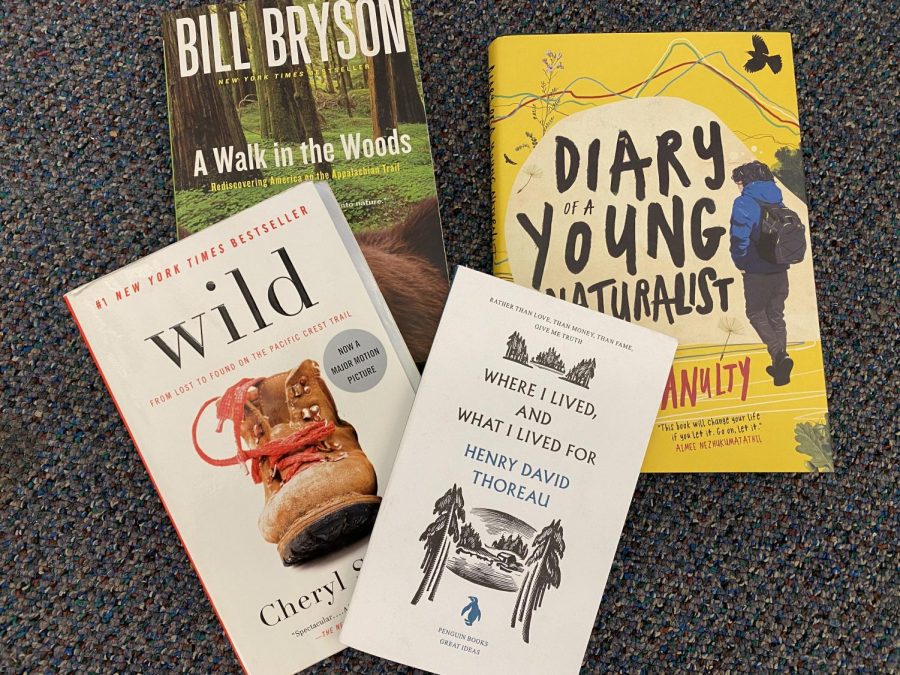Credo Project Cultivates Attitude of Gratitude
AP Language and Composition students are inspired to journal by the featured authors in their Language of Nature Unit
November 24, 2021
A Harvard study determined that “gratitude is strongly and consistently associated with greater happiness.” Gratitude is the process of acknowledging the goodness in your life. This study asked one group of people to write down what they were grateful for throughout the week. The other group was asked to write down their irritations. After 10 weeks, the group that wrote about their gratitude was much more optimistic and happier.
A similar project is being conducted at SHS. Several juniors in Cathy Hall’s AP Language and Composition class are journaling about gratitude as the focus of their Personal Credo Project. According to Hall, “The goal of the project is to cultivate a closer personal connection with the tenets of Transcendentalism.” Transcendentalism is the philosophy that spirituality cannot be achieved through reason and rationalism, but instead through self-reflection and intuition.
Ellison O’Connor, a junior in Hall’s class, chose to write thank you notes for people in her life. When asked if she felt happier since beginning this assignment, she said, “Yes, I feel like it’s a self-realization of who I am grateful for and how they affect my life.” O’Connor thinks it is a great practice to take part in, especially around Thanksgiving.
Hall has taken part in recording her gratitude as well: “About 10 years ago, I did keep a gratitude journal for myself as part of a project I did with 8th graders.” She explained that some of her students grew frustrated with trying to think of something to be grateful for every day, but Hall commented, “I never ran out of things to write about, and the practice helped me see some aspects of my life with a different lens.”
Hall described being more appreciative of the little things in life, noting, “Keeping a gratitude journal was a positive experience for me, but I didn’t actually continue the practice, which is unfortunate.”
Another student engaging in the Credo project is my sister, junior Molly Ryan, who decided to journal her gratitude every morning. Ryan said, “It makes me realize that I have so many things to be grateful for.” Ryan explained, “The credo project has allowed me to have this dedicated time for mental health because, previously, it would stress me out to make time for myself.”
SHS adjustment counselor Jennifer Lopes believes that gratefulness can be beneficial to mental health. Lopes said she writes down what she is grateful for: “I think it’s helpful–especially when you’re finding your kind of in a negative place. I think it’s kind of a good way to refrain from it.”
Lopes compares recording gratitude to taking inventory of your mind, commenting, “You could be having the crappiest of crappy days, and if you can think of, well, what is one thing I’m grateful for here? Sometimes trying to focus on that, and not the other stuff, can shift, or give you whatever you need, to try and look at things differently.”
Lopes, Ryan, and O’Connor unanimously recommend reflecting on gratitude. With all of the benefits of gratitude, this could be a great way for SHS students to take a break from their stressful academics and reflect on themselves.
